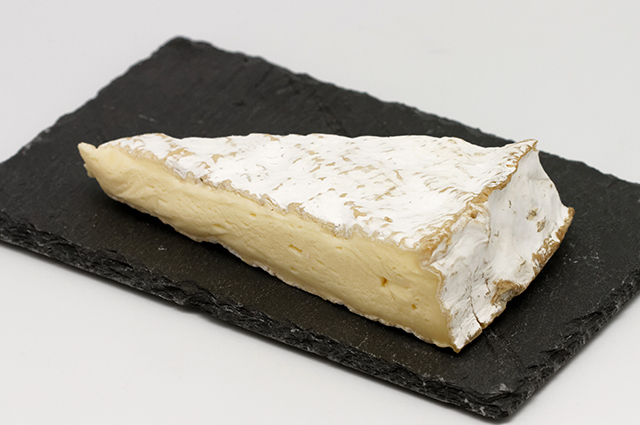Historical
Guide to Fats 6: Saturated Fats
About saturated fats Saturated fatty acids (SFAs) are found in animal foods and tropical plant foods. They add structure to our cell membranes and help us absorb fat-soluble vitamins A, D, E and K. Some saturated fats are necessary but quantity, quality and kind are important. Bad or good? The case against saturated fat began in the 1950s with a study linking it to raised cholesterol and coronary heart disease. Although the methodology was suspect, research still produces conflicting results. For example, in 2010, one overview found no correlation between saturated fat intake and cardiovascular disease (CVD), while another study found that replacing saturated with polyunsaturated fat lowered risk. No wonder we're confused. One thing seems clear, however: replacing saturated fats with trans fats and carbohydrates has been disastrous. Trans fats cause manifold problems (see Trans Fats and Problem Oils blog) and surplus carbohydrates prompt our bodies to create palmitic acid, a saturated fat that elevates 'bad' LDL cholesterol…! Excess saturated fat and starchy carbs form a dastardly duo. Pepperoni pizza, anyone? Tradition and evolution Traditional foods advocate Mary Enig argues that abundant saturated fats from healthy animals and tropical plant foods are beneficial, including raw diary. For example, the short-chain SFAs in butter are anti-microbial and butter is a good source of fat-soluble vitamins. (See The Truth About Saturated Fat.) 'Paleo-diet' researcher Loren Cordain, however, maintains that we evolved eating minimal saturated fats. Our sources were whole eggs, fish, seafood and the flesh of lean wild beasts; we ate no dairy, as pinning those wild dames down for a good milking was … er … awkward. Tropical islanders ate coconut foods. The saturated fat issue shows that nature (and nutritional science!) are rarely clear-cut. Saturated fats resist rancidity and tolerate heat: good. Some are anti-microbial and absorbed directly for quick energy: also good. Others are healthful in small quantities but not in excess (e.g. palmitic acid). Raising cholesterol Palmitic acid is found in palm, palm kernel and coconut oils; poultry; eggs; dairy; and grain-fed meat. It raises 'bad' LDL cholesterol when eaten to excess or made in the body from surplus carbs … but … we use it to form new memories and access old ones! So we need enough from whole foods for good brain function but not enough to raise LDL cholesterol. Stearic acid, found in wild meats, eggs and cocoa butter, does not raise LDL cholesterol. Lauric acid, found in coconut oil, can raise cholesterol – the jury is out on the HDL/LDL question. However, research on tropical islanders eating traditional coconutty diets found raised cholesterol but minimal stroke or heart disease. Why? Lauric acid is anti-microbial and anti-fungal. It seems to protect us by eliminating bacteria that promote leaky gut. Leaky gut contributes to chronic inflammation, and inflammation is a crucial step in the formation of lethal blood clots. When married to a diet rich in veggies, fruits, nuts, seeds and lean protein, coconut oil has many benefits. Coconut oil: an exciting future The most fascinating potential benefit is the help it can offer Alzheimer's sufferers. Coconut oil contains medium-chain triglycerides (MCTs). When metabolised, these form ketone bodies. Cells (including brain cells) can use ketone bodies for fuel if their primary fuel, glucose, is (a) unavailable or (b) they are unable to use it. In Alzheimer's, certain brain cells cannot use glucose due to insulin resistance. They die off years before symptoms appear. If those cells had access to ketone bodies, they might live and continue to function. Paediatrician Dr Mary Newport stumbled upon coconut oil when trying to help her husband Steve, who suffered from severe Alzheimer's disease. Steve has actually regained some cognitive function by eating coconut oil every day. The potential for preventing and easing the symptoms of Alzheimer's – and other diseases associated with insulin resistance – is mindblowing. Read their fascinating story here. Food sources of SFAs Good: virgin coconut oil; grass-fed, organic beef, lamb and venison; genuinely free-range, organic poultry and eggs; wild meats; ghee for cooking (Indian clarified butter); raw, grass-fed, organic dairy products, if eating dairy (raw cheeses and butter are available in Ireland) Bad: all processed and fatty meats; non-grass-fed meats; battery-raised poultry and eggs; pasteurised dairy products; palm and palm kernel oils; hydrogenated or refined/bleached/deodorised coconut oil Stability and cooking Saturated fats are not prone to rancidity. Butter is best refrigerated but virgin coconut oil can tolerate a year or two on the counter without going off. The best saturated cooking fats are virgin coconut oil (smoke point 350°F/177°C) and ghee (smoke point 485°F/252°C). Refined coconut oil has a higher smoke point but contains bad trans fats. Veggies stir-fried in coconut oil do not brown; they brighten and taste hot, fresh and vibrant! Go to… Guide to Fats 7: Trans Fats and Problem Oils Further reading Loren Cordain, The Paleo Diet (revised edition), New Jersey, 2011 (See here for Cordain's published research.) Robb Wolf, The Paleo Diet Solution, USA, 2010 Articles by Mary Enig on saturated fats: see www.westonaprice.org and www.mercola.com Alzheimer's and coconut oil: http://www.coconutketones.com/whatifcure.pdf




